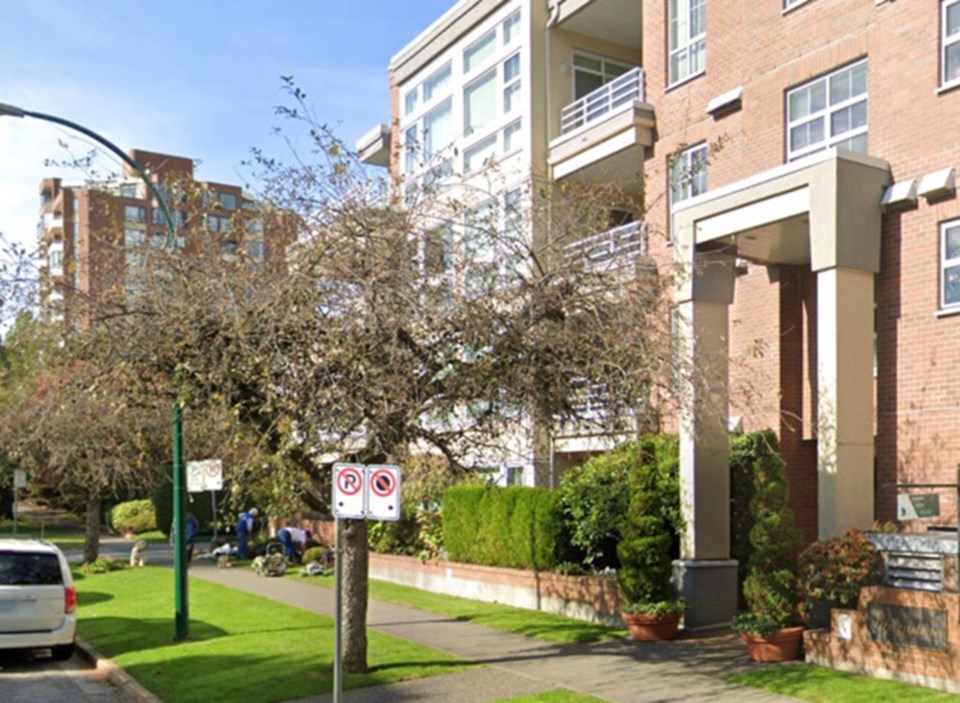A family has to give up their $1.1-million Vancouver condo and nearly $70,000 in cash to the provincial government, following the son's drug trafficking conviction that stemmed from a 2014 Kelowna RCMP investigation.
In 2019, the BC Civil Forfeiture Office filed a claim against 57-year-old Stephen Chen, along with his parents Xiong and Juen Chen, alleging two Vancouver properties the family owned were “proceeds and instruments of unlawful activities.”
The Chens immigrated to Canada from China in 1980, when Stephen was 11 years old.
The properties targeted by the B.C. government include a condo at 2105 West 42nd Ave. that the family purchased in 2015 for $750,000, which is now assessed at $1.167 million, and a home on East 5th Avenue, purchased by Stephen and Juen in 1998. That home was assessed at $2.155 million in 2025.
Stephen Chen had previously been convicted of trafficking a large amount of MDMA between February and August 2015, following a Kelowna RCMP investigation that had begun in 2014. After trial, Chen was convicted of supplying another drug dealer with six shipments of MDMA, totalling 11 kilograms.
He was sentenced in 2021 to three years and eight months in jail.
More than five years after the forfeiture suit was first filed, a settlement agreement was signed by all parties in December 2024. The Chens agreed to forfeit their West 42nd condo and $67,287 in seized cash, while the Civil Forfeiture Office would pay the family back $75,000 from the sale of the condo.
As part of the agreement, the Civil Forfeiture Office agreed to cease its forfeiture action against the East 5th Avenue home, but Stephen Chen's name has to be removed from the title for as long as his parents remain alive.
Parents challenge agreement
While they initially signed the agreement last December, Xiong and Juen Chen said in an affidavit last month that they are unable to speak or read English and did not understand the settlement agreement they had signed.
“I tried to raise an issue about the mediation, but the interpreter told me that I would not be successful in challenging the forfeiture matter and that if I did, the government would take my house from me,” Xiong Chen said in the affidavit.
“I never had anything to do with my son’s criminal matter. I do not have a criminal record and have never been investigated for anything related to what my son was convicted of. I provided my son money as a property investment to purchase the West 42nd property. I also invested funds to purchase the West 42nd property for my grandson.”
But in a B.C. Supreme Court decision made last week, Justice Lindsay LeBlanc said Xiong and Juen Chen had the opportunity to get independent legal counsel before signing the agreement, and ruled that the agreement is binding.
Annual reported income of $37K
Stephen Chen is also alleged to have used the illegal money laundering service business Silver International Inc., which was central to a federal money laundering investigation that resulted in stayed charges in November 2018 against its two primary operators.
The underground laundering business was alleged to have laundered as much as $220 million a year for its clients. One of the primary operators of the business was murdered in September 2020.
The Civil Forfeiture Office said the investigation into Silver International showed Chen had deposited $5.31 million and withdrew $2.27 million between June 1 and Oct. 1, 2015, the day before he was arrested in his Richmond condo. Police found $60,000 in cash in the condo during the arrest.
According to the Civil Forfeiture Office's claim, an analysis of Chen’s tax returns from 2006 to 2012 showed he had an average reported annual income of about $37,000.
Supplied MDMA for smuggling conspiracy
Stephen Chen's conviction came as part of an investigation into a much larger drug trafficking operation, which involved the smuggling of a large amount of drugs into the United States, according to previous court decisions.
The Kelowna RCMP investigation began in 2014, following a tip from a confidential informant. The investigation led to the discovery of a conspiracy by a man referred to as T.S.J. to ship large amounts of MDMA from Vancouver to Los Angeles in exchange for cocaine.
Chen supplied a portion of the MDMA to T.S.J.
Referring to the first shipment as a “test run,” those involved had planned to make the exchange a regular occurrence, with plans to increase the quantities to the hundreds of kilograms per shipment after a few trips.
In June 2015, 12.5 kilograms of MDMA was concealed in a secret compartment of a truck in Surrey and the truck headed to the border.
Unbeknownst to those involved, the truck was being driven by two undercover police officers, and before crossing the border, the MDMA was replaced with a placebo substance. It was then delivered to the receiving party in Los Angeles, who were arrested by U.S, authorities.
T.S.J. pleaded guilty to trafficking and conspiracy to export MDMA and was handed a six-year jail sentence.
The year prior to the failed MDMA-cocaine deal, T.S.J. was also allegedly involved in a failed attempt to import opium from Pakistan to Prince Rupert. This planned importation was the catalyst for police to begin surveilling T.S.J.'s movements in 2014, and it led to Canadian Border Security Agency investigators finding 40.1 kg of opium in a November 2014 shipment at the Prince Rupert port.
With files from Business in Vancouver



